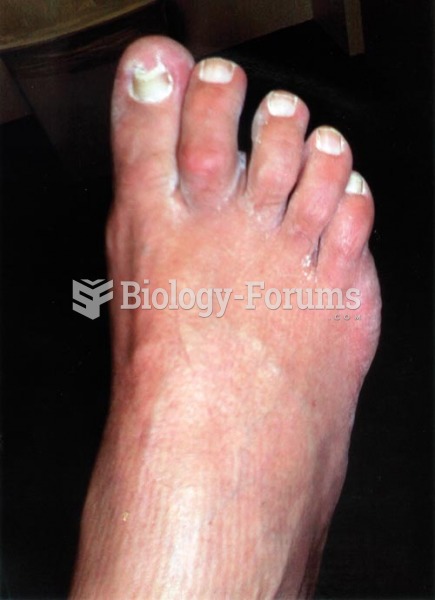|
|
|
Bisphosphonates were first developed in the nineteenth century. They were first investigated for use in disorders of bone metabolism in the 1960s. They are now used clinically for the treatment of osteoporosis, Paget's disease, bone metastasis, multiple myeloma, and other conditions that feature bone fragility.
HIV testing reach is still limited. An estimated 40% of people with HIV (more than 14 million) remain undiagnosed and do not know their infection status.
ACTH levels are normally highest in the early morning (between 6 and 8 A.M.) and lowest in the evening (between 6 and 11 P.M.). Therefore, a doctor who suspects abnormal levels looks for low ACTH in the morning and high ACTH in the evening.
The term bacteria was devised in the 19th century by German biologist Ferdinand Cohn. He based it on the Greek word "bakterion" meaning a small rod or staff. Cohn is considered to be the father of modern bacteriology.
Earwax has antimicrobial properties that reduce the viability of bacteria and fungus in the human ear.
 In 1891 William Dean Howells championed the poetry of Emily Dickinson: “This poetry is as characteri
In 1891 William Dean Howells championed the poetry of Emily Dickinson: “This poetry is as characteri
 Symbolic interactionists stress that a basic characteristic of humans is that they attach meaning to ...
Symbolic interactionists stress that a basic characteristic of humans is that they attach meaning to ...





